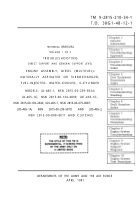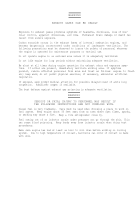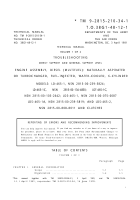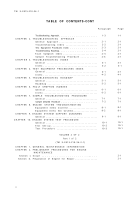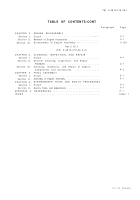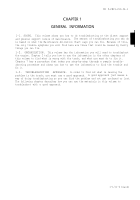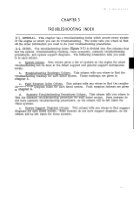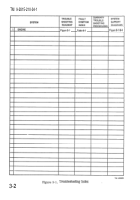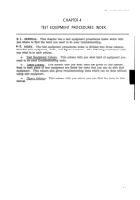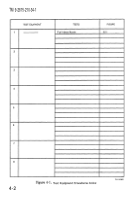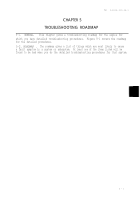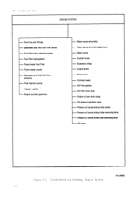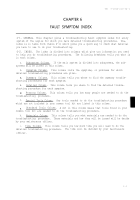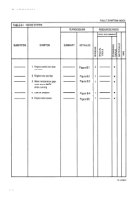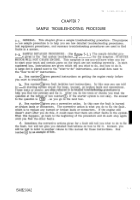TM-9-2815-210-34-1 - Page 9 of 63
TM 9-2815-210-34-1
CHAPTER 2
TROUBLESHOOTING APPROACH
2-1. GENERAL APPROACH.
This chapter gives you instructions on how to use the
troubleshooting material to help, you find and fix the trouble. In every system of the
engine there can be faults or problems which will cause certain symptoms. Symptoms
can be such things as unusual noise, vibration, or even complete failure of a system.
This volume gives information for each system on which you can do troubleshooting to
find faults and fix them. Before you troubleshoot a system, you should look at the
troubleshooting indexes which will lead you to the information you need to help make
your troubleshooting faster and easier. If you follow the instructions the right way,
you will find those troubles you can fix. But, if you fix something and the trouble
is still there, it means there is more than one trouble. If this happens, start all
over again to find the other trouble.
2-2. TROUBLESHOOTING INDEX.
The troubleshooting index, and instructions on
how to use it are in chapter 3. Go to this index first because it tells you where to
find troubleshooting roadmaps, fault symptom indexes, summary troubleshooting
charts and support diagrams for each system.
2-3. TEST EQUIPMENT PROCEDURES INDEX.
The test equipment procedures index,
and instructions on how to use it are in chapter 4. This index tells you where to find
tests which you can use to do your troubleshooting. It also tells you what equipment
you will need to do the tests. If you have a STE/ICE (Simplified Test Equipment/
Internal Combustion Engine) Set (NSN 4910-00-124-2554), you may use it, where appli-
cable, to do your troubleshooting.
Refer to TM 9-4910-571-34&P.
2-4. TROUBLESHOOTING ROADMAP.
A troubleshooting roadmap is given in chapter 5.
If the system is made up of subsystems, these subsystems are also on the roadmap.
Under the subsystem is a list of things which are the most likely causes of a fault
symptom in that subsystem.
If you have enough skill, you can troubleshoot these
things on the engine without using the detailed troubleshooting procedures. So if
you know enough about the engine to work on your own, use the roadmap for the
system with the problem before you check the fault symptom index.
2-5. FAULT SYMPTOM INDEX.
Fault symptom indexes and instructions on how to
use them are in chapter 6. For each system of the engine, there is an index which
gives you a list of the fault symptoms for that system. The index also tells you
where to find the detailed troubleshooting procedures and what resources (tools/
people) you need to do each procedure.
2-6. SAMPLE TROUBLESHOOTING PROCEDURE.
A sample troubleshooting procedure
is in chapter 7.
This sample procedure will help you see the way detailed trouble-
shooting procedures are to be used.
2-1/(2-2 blank)
Back to Top

